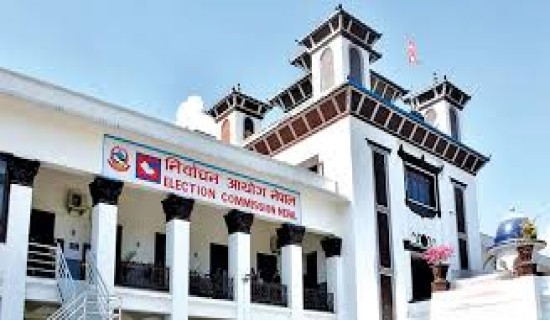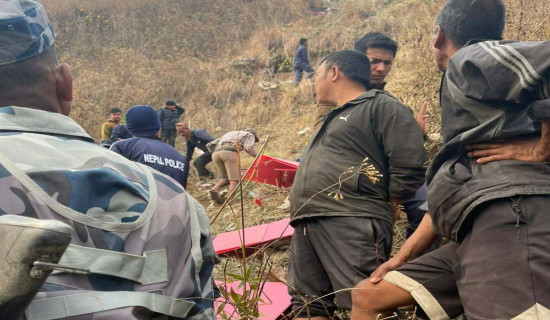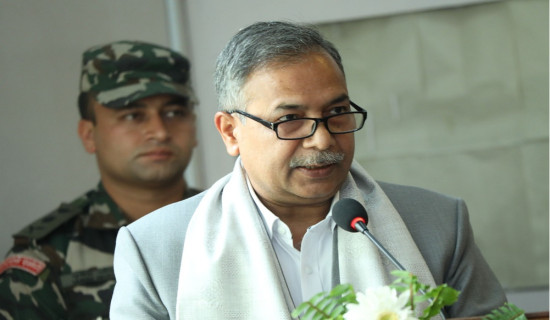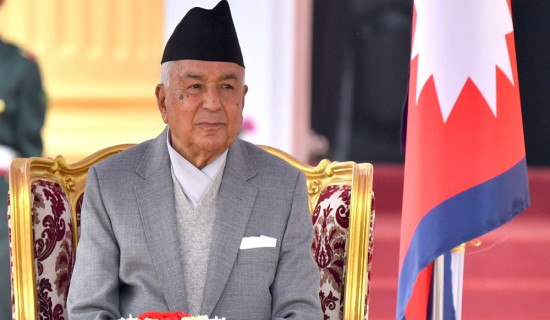- Tuesday, 3 March 2026
Urgency Of Appointing Foreign Minister
Let the obvious be stated first: The interim government, led by Sushila Karki, is the product of a happenstance. None of those in her cabinet, including herself, may have thought they would have to take office of respective ministries in these most troubling times of Nepal’s history. Maybe, due to their ‘non-political’ nature or becoming first-timers, the ministers are still struggling to fathom out what exactly to do.
But it is already more than one and a half months since the Karki administration took office, time enough to set the tone for what the government will do, how it will help the country heal the wounds inflicted by deaths, destruction, violence and lawlessness of September 8 and 9, 2025, and its messaging to the world. But the government itself seems to be in the making: It is still expanding the cabinet, and by appearing hostile to political parties, it is helping them vindicate the claim that the early September revolt and the complete mayhem that followed was the outcome of carefully coordinated plot and conspiracy orchestrated by foreign powers, to destabilise the nation, to uproot the foundation of Nepali state.
Truth be told
It is natural that when a revolt with far-reaching implications unfolds in Kathmandu, Nepal’s immediate neighbours as well as other powers become concerned and watchful. Again, it is evident that global powers (the established one as well as the rising ones) have their competing interests, which they want to safeguard, come what may, in Nepal. The paradox of Nepal’s foreign relations has been that when we are good, or perceived to be so, to one power, the other gets sore and vice versa. But because of the mandate of holding an election on March 5, 2026, and because of the need to secure international support and legitimacy to fulfill that mandate, the government has to keep the best possible relations with all powers.
The vandalism and arson attacks of September 9 have eroded Nepal’s international image. Our tourism prospect looks bleak and foreign direct investment is likely to suffer a huge setback. Also, there are questions about the foreign policy orientation of this government. There are rumours to be debunked, there are questions to be answered. For this, we need a person with a sound understanding and foresight — someone who understands the shifts and changes in geopolitics and their potential implications for Nepal, who can confidently and convincingly present Nepal’s case, who has the conviction to defend Nepal’s interests without compromise—as a foreign minister.
The makeup of the cabinet is such that there is no one with expertise in this field—Rameshore Khanal, an economist; Mahabir Pun, an innovator; Om Prakash Aryal, a lawyer; Jagdish Kharel, a journalist; and the PM herself, a former chief justice.
A foreign minister plays a crucial role in shaping a nation’s image. They define priorities, defend national interests, seek assistance when needed, clear misconceptions, and—most importantly—represent the government before the world. Former foreign minister Kamal Thapa, in his book Nakabandi ra Bhurajniti, recounts how he worked to make India and other countries understand Nepal’s position during the 2015/16 Indian blockade on Nepal. Such a vital portfolio remains conspicuously vacant in the interim government, with the prime minister—whose expertise does not lie in foreign affairs—overseeing it.
The irony of the matter is that PM Karki first held a virtual meeting with Nepal’s ambassadors and heads of missions abroad to communicate the truth about Nepal’s current political situation on October 8. One week later, her government took the decision to recall 11 of those ambassadors. An appropriate course of action would probably have been to first appoint the foreign minister. The PM may be looking for an ideal candidate or may be those considered ideal for the job are not willing to take on the mantle just for four months. Or it could be that the PM is thinking of keeping the key defense and foreign ministry portfolios with herself.
Important task
In either case, the government has an important task in hand: Convene a meeting with representatives of foreign countries and tell them what this government intends to do, its position on human rights and democracy, rule of law, commitment to holding elections on March 5 and handing over the reins to elected House, what kind of relations it will have with immediate neighbours and major powers, whether it upholds Nepal’s tradition of not allowing its soil to be used by one power against the other, and so on.
The government needs to tell the world about the context of Gen Z protests and mob attacks, assure that it is fair, neutral and committed to justice, that every corruption case shall be dealt with strictly and that those responsible for killings and destruction will be brought to justice. In times of uncertainty, transparent communication is a key to dispelling doubts and speculations.
(The author is a journalist and educator based in Kathmandu.)







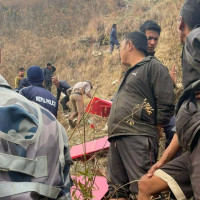
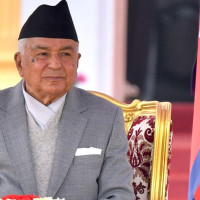


-original-thumb.jpg)

